Steel task force is latest group to tackle jobs crisis
- Published
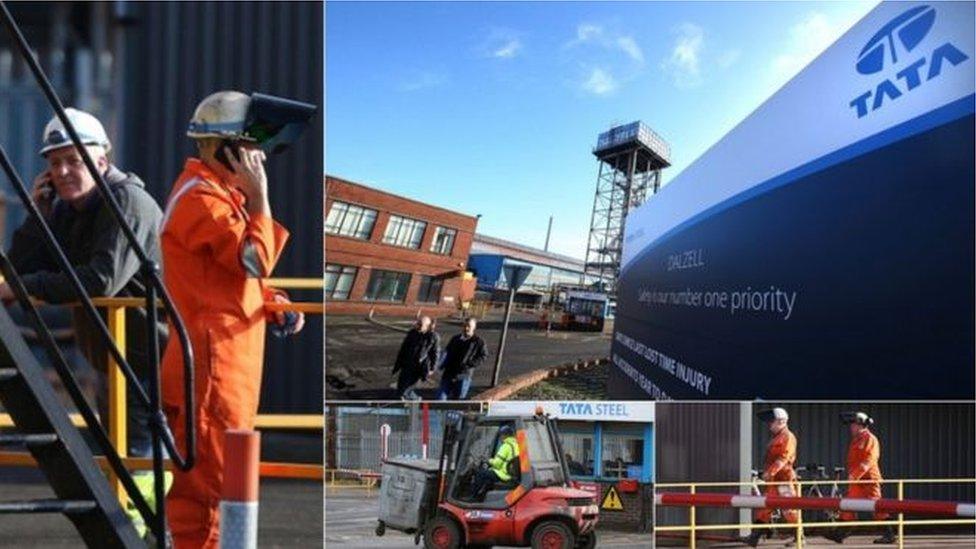
The Scottish Steel Task Force meets for the first time on Thursday following the announcement that steel firm Tata is to close its two plants in Scotland with the loss of 270 jobs.
First Minister Nicola Sturgeon announced last week that the government-led task force would "fight for a future for our steel industry".
The group will be chaired by Business Minister Fergus Ewing and bring together key representatives who will work to keep open the Dalzell plant in Motherwell and Clydebridge in Cambuslang.
It is the latest in a series of task forces set up to tackle problems ranging from job losses to environmental crime and the refugee crisis.
But what do they do? Who sits on them and how successful have they been?
BBC Scotland's business and economy editor Douglas Fraser has heard from one veteran of these task forces who described them as "largely useless".
Case 1: The Fraserburgh Task Force
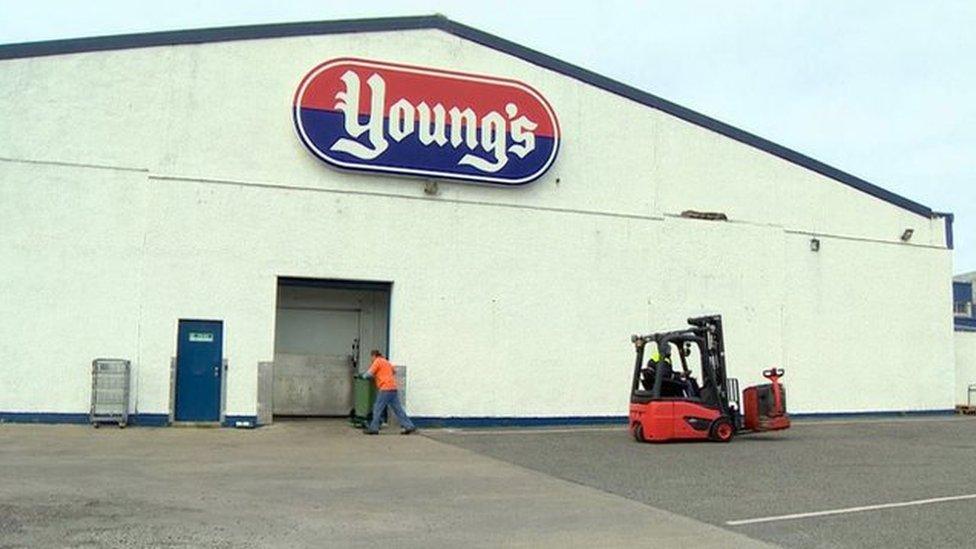
This was set up at the start of October "to support workers and communities affected by Young's Seafood's decision to reduce its operations in the town".
The move followed a decision by Sainsbury's to transfer a £100m fish processing contract away from Young's, resulting in the loss of 650 jobs.
The business minister said after its first meeting on 2 October: "The Task Force will also consider how to support longer term sustainable employment in the wider area.
"This work will take a number of months and all members of the Task Force agreed today to collaborate closely to deliver an Economic Recovery Plan that meets the needs and aspirations of the workers, the people of Fraserburgh and surrounding communities."
The Fraserburgh team is made up of representatives of Young's, the Usdaw union, Scottish Enterprise, Skills Development Scotland, Aberdeenshire Council, local MPs and MSPs.
Also taking their place around the table are Highlands & Islands Enterprise, Skills Development Scotland, the Department of Work and Pensions, the Scottish Seafood Association, the Scottish Pelagic Processors Association and Seafood Scotland.
Case 2: The Refugee Task Force
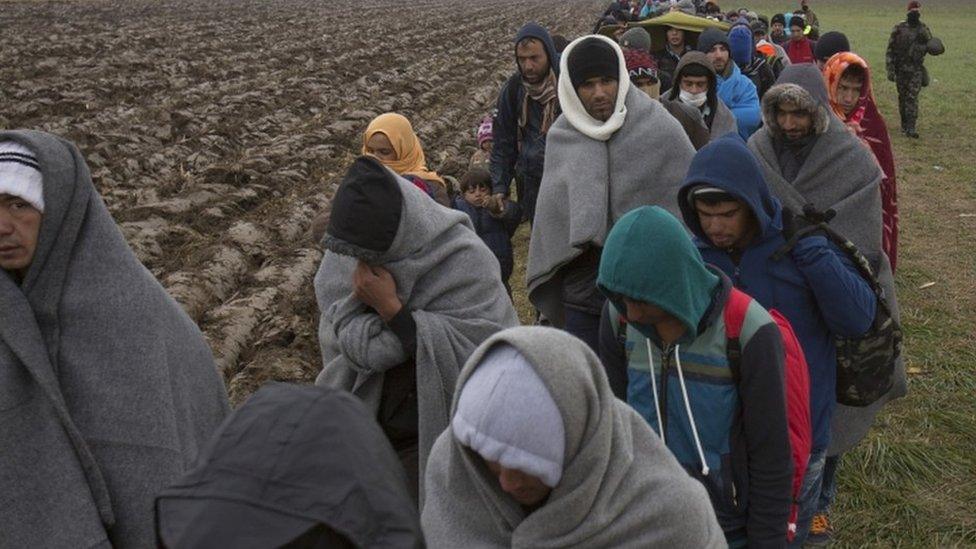
An emergency summit was convened in Edinburgh on 11 September at which First Minister Nicola Sturgeon said Scotland stood ready to take at least 1,000 new refugees "as an immediate priority".
Represented on the task force are the Scottish and UK governments, Scottish Refugee Council, British Red Cross, Glasgow Girls, STUC, New Scots, City of Edinburgh Council, Cosla, the Scottish Federation of Housing Associations, the DWP and Police Scotland.
Following the meeting, the Scottish government's Europe Minister Humza Yousaf said: "It is very encouraging to hear that the majority of councils have indicated a willingness to accommodate refugees - we will now build on this positive response and ensure the appropriate support and integration services are put in place."
Case 3: The Environmental Crime Task Force
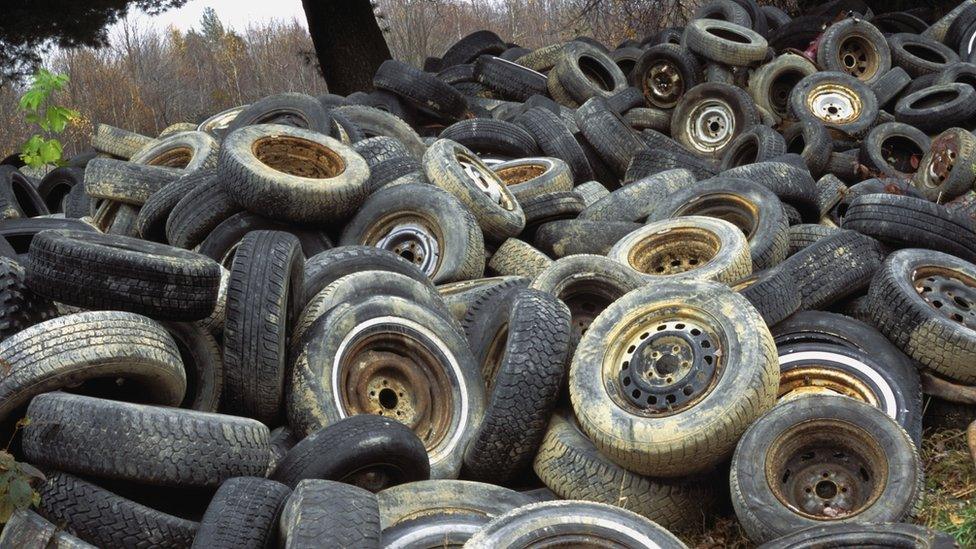
Established by Richard Lochhead, Cabinet Secretary for Rural Affairs and the Environment, this was tasked with "supporting delivery of the Scottish government's commitment to tackling environmental crime".
The task force, which presented its findings to the Scottish government in June 2013, said it had looked to "define environmental crime, identify opportunities and priorities for preventing, tackling and deterring environmental crime, improve co-ordination between law enforcement agencies and others and make proposals for legislation, research and other measures to tackle environmental crime".
It was made up of the Association of Chief Police Officers in Scotland, the Crown Office and Procurator Fiscal Service, the Scottish government's Environmental Quality Division, Justice department and Natural Resources Division, the Scottish Environment Protection Agency and the Society of Local Authority Chief Executives and Senior Managers (UK).
Case 4: Longannet Task Force
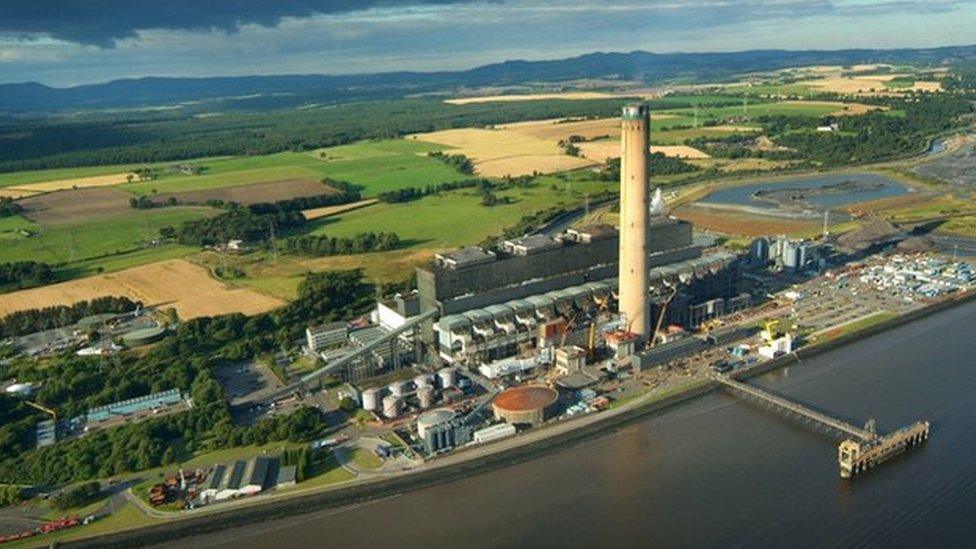
In March, Scottish Power announced plans to close its huge coal-fired power station at Longannet in Fife early next year.
The move came after the energy firm failed to win a crucial contract from the National Grid.
The Longannet Task Force, again chaired by Fergus Ewing, met on 24 August and was made up of local MPs and MSPs, trades unions, businesses and government agencies.
It will reconvene next month once final figures have been produced to show how many Longannet employees want to take redundancy, seek redeployment within the company or find a new job.
Hugh Finlay, Scottish Power's generation director, said: "The taskforce continues to make good progress and all parties around the table are working closely together to put forward a viable economic plan for the region. We are also continuing our consultation process with every team member employed at Longannet, and we remain committed to finding the best outcomes for everyone at the station."
Case 5: Hall's of Broxburn Task Force
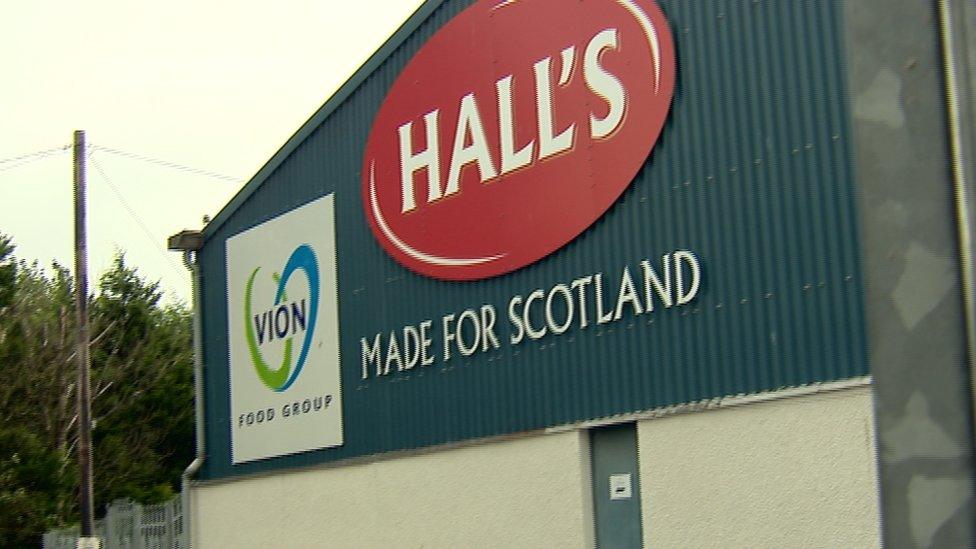
Production at the Hall's of Broxburn meat factory in West Lothian came to an end in February 2013.
Almost 1,700 jobs had gone since Dutch owners, Vion, announced its closure the previous year.
Thomas Lynch was a manager at the plant, and also sat on the task force of Scottish government, union and industry representatives which tried to save it from closure.
He said at the time: "It's very frustrating. I think everyone involved in the Hall's site just wanted honesty. Deep down we probably knew it was a wasted effort.
"From day one the general feeling was that the site was going to close even though we went over cost-saving measures."